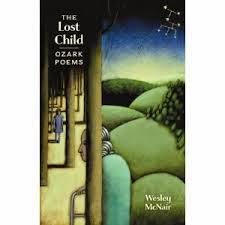...... For the past five years I have taught a College Writing Seminar at Bunker Hill Community College in Boston. Bunker Hill serves an inner-city, and multiethnic population. Many of the students are older than traditional college students; many of the students are working full and part time jobs, and many will go on to four year institutions to continue their education. The college even offers midnight classes to accommodate the needs of this student population, and provides technical, nursing, and traditional liberal arts courses. Here is an essay from one of my students describing her first weeks in college. ---Doug Holder
My Experience At Bunker Hill Community College
By Alexandria Paul
It has been two weeks since classes started and I already love college. Just the idea of finally being independent with no one on my back about my studies excites me when I wake up every morning. Unfortunately, high school for me was like being at the bottom of a swimming pool with my ankle tied to a plug in the drain. It was hard to undo that hold authority had over me while I was just trying to gasp for independence. It’s a big shift going from a public high school where there are disciplinarians roaming the halls, waiting for a student to step out of class to question and chastise, versus college where the staff there treats you as the adult you present yourself to be.
On the first day of classes I was excited.
“Finally, I can really focus and fully immerse myself into everything it takes
to become a great chef,” I thought to myself as I stepped out of the revolving
doors of Bunker Hill. In that single moment I felt the happiest, because no one could touch me. But it wasn’t just the fact that I just gained the
independence. Prior
to school starting I made a very big life changing decision. In the last weeks
of summer, while getting things ready for school, I thought about what
I really wanted to do with my life. I went through a mental game of tug of war
trying to determine what I really wanted my future to be.
I
had already chosen my classes for psychology, set up my schedule and had
everything set when it dawned on me. “You’ve loved cooking since you were a little
girl. You are passionate about it and there are so many career opportunities in
the food industry," I told myself. Taking a deep breath I sat down and questioned
myself about taking on multiple client’s problems in my role as a counselor. I thought, "Is this something I’m passionate about?" For a long time I was stuck
between wanting to be a chef and wanting to be a therapist. It took me about a
week to weigh out the pros and cons of both careers and come up with a
solution.
I had an epiphany during that week and decided to go on ahead and change my
major from Psychology to Culinary Arts. And so far it was one of the best
decisions I could have made in my life. My first day in the kitchen was nerve
racking. My chef, Chef Kelley, gave me a task and right on the spot I forgot what
he told me to do. I just walked to a part of the kitchen where he couldn’t see
me and helped out my colleagues with their tasks. I also forgot my notebook in
the dining room twice, each time just standing there while he was talking and
others were writing down his every word. It was like my confidence was dwindling
away as I kept messing up.
At
the end of the day my chef ordered me and my classmates to clean the whole
entire kitchen. We all went to work scrubbing the tiles of the greasy kitchen floor. We shined anything that was steel in the kitchen. And almost everything in
that kitchen is made of steel. I was
extremely upset about how my first day played out. But I had to take a moment
to think and remember why I choose this major and how much dedication
would have to be put into this kind of career. I got it together and kept
going. Even though my first time in the kitchen wasn’t what I had expected it
to be I was happy that I made it past my first day.
The
Friday of my first week I attended my College Writing Seminar for the first time.
I really enjoyed it and the classmates that I met. I felt like it’s a
good group of people to be surrounded by. I can already tell that the class
would have really good and interesting debates and discussions since everyone’s
inputs and opinions are different. In the beginning of class my professor, Professor
Holder, asked us a question about the Market Basket incident and if we sided
with the workers or the management team. I hadn't heard about the
dilemma that the Somerville and the greater community were having. But after I asked Professor Holder to give
me the background info I was then able to choose a side (the workers) and joined the discussion.
In
high school I was a part of the debate team and participated in numerous
competitions. So whenever we have a debate or a Socratic seminar it was exciting for me
to be able to share my thoughts and input on different topics. After my first
English class I felt like maybe my high school did prepare me for college. I
kind of had a secret fear for a while that I wasn’t going to make it in
college. I felt like everything my high school taught me was so easy and the
fact that graduates came back and told us that they weren’t prepared scared me even more. But it wasn’t until after
surviving my first week that I knew I could mentally and physically handle
everything college has to offer me, hard work included.
The
weeks following things gradually got better. I got more control over my knife, started
studying my knife cuts, and working on my English assignments every chance I
got. Bunker Hill is just my starting point. I plan to transfer to a four year college–preferably
Johnson and Wales- and get my Bachelor’s Degree in Culinary Arts.
Nevertheless, I’m glad that I picked Bunker Hill as my base because my
experience so far has been great ever since I made the decision to change my
major.
Paul has been writing since she was very young. On Saturday afternoons during her free time she would sit with the computer at home and write novels (Science Fiction, Non-fiction, fiction). If she wasn't on the computer she was writing in a notebook. Reading has always been one of her hobbies. Paul loves to read for fun but hated being forced to read. It was something about reading and writing that has always sparked her interests.
|

















































